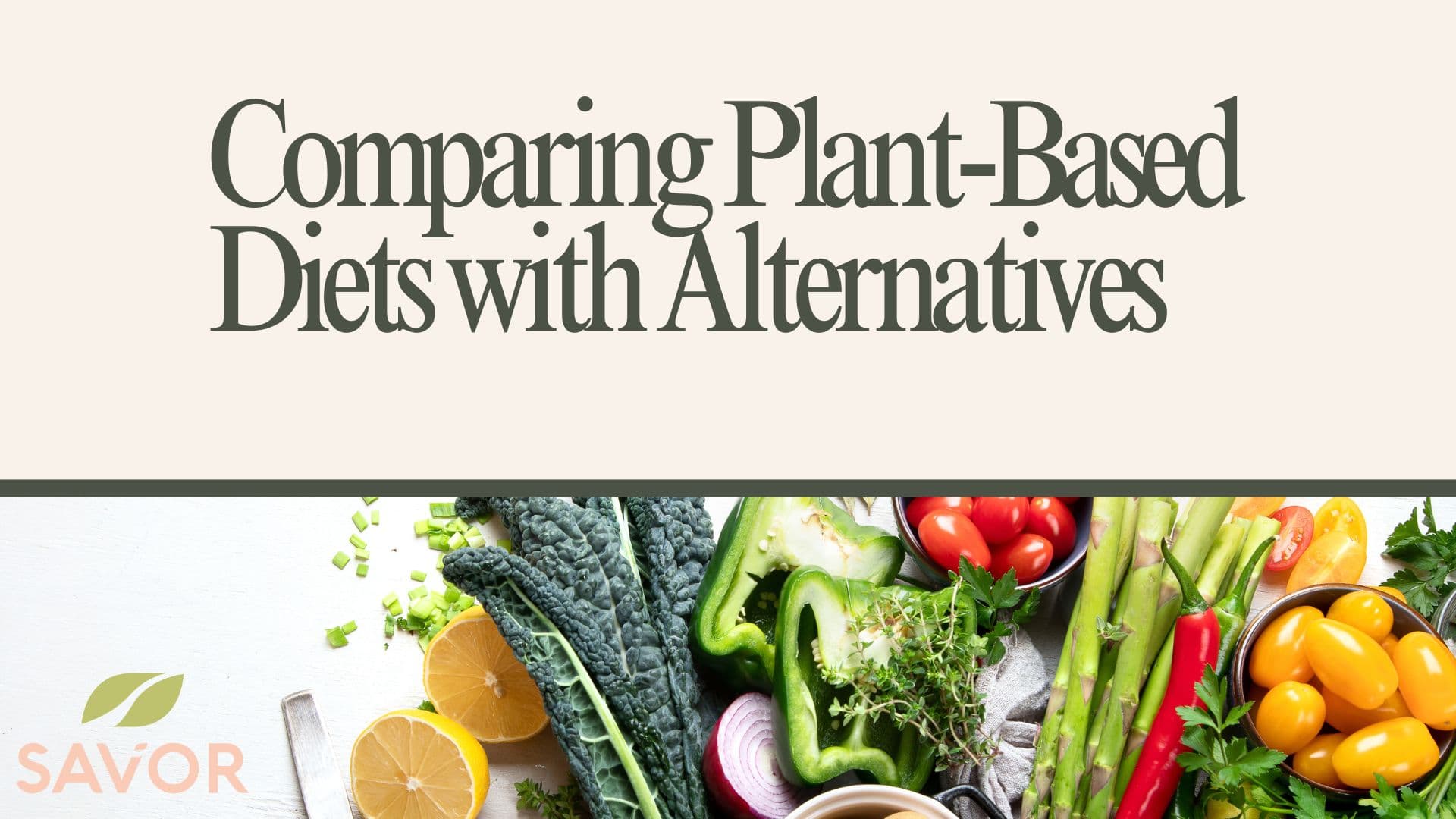Comparing Plant-Based Diets with Alternatives
Among the most popular dietary patterns including keto and pescatarian—vegan diets consistently come out on top when it comes to heart health, body composition, and sustainability. Here's how they compare and why a fully plant-based lifestyle may be the smartest choice.

Comparing Plant-Based Diets with Alternatives
In recent years, plant-based diets have gained the interest of the public for their potential to boost health and reduce environmental harm.
Among the most popular dietary patterns including keto and pescatarian—vegan diets consistently come out on top when it comes to heart health, body composition, and sustainability. Here's how they compare and why a fully plant-based lifestyle may be the smartest choice.

Health Advantages of Vegan Diets
Heart Health: Plant-based diets are closely linked to improved cardiovascular outcomes. Vegans tend to have lower LDL ("bad") cholesterol, reduced total cholesterol, and lower levels of apolipoprotein B—key markers of heart disease risk. These benefits significantly outpace what’s observed in meat-based diets.
Weight and Body Composition: Vegan diets also tend to result in better body composition. Studies show that individuals following a vegan lifestyle typically have the lowest body fat percentages, body fat mass, and levels of visceral adipose tissue, compared to those who consume fish (pescatarians) or dairy and eggs (vegetarians).
Balanced Nutrition: While vegan diets can be rich in fiber, vitamins, and antioxidants, they must be carefully planned to avoid processed meat substitutes that may be high in saturated fats. Whole, minimally processed plant foods offer the most health benefits.

Maintaining the Environment
According to a study published in the The American Journal of Clinical Nutrition and reported by TIME, a vegan diet is not only good for your body—it’s also the most environmentally friendly. Compared to keto and paleo diets, which are rich in animal products, vegan diets produce the lowest levels of greenhouse gas emissions. Even small shifts toward plant-based eating, such as reducing beef consumption, can have a significant positive impact on climate change.

How Vegan Diets Compare to Similar “Hybrid” Diets
All three diets—vegan, vegetarian, and pescatarian—can reduce chronic disease risk compared to omnivorous diets. However, pescatarians still consume animal products, and vegetarians may rely heavily on cheese and other high-fat dairy products. These factors can lessen the potential health and environmental gains. Vegans, who eliminate all animal-derived foods, generally see the greatest benefits in both areas.

A Green Future
Health experts and scientists have been saying for years: the evidence supports making the shift toward a fully plant-based diet.
Veganism not only improves heart health and body composition but also helps curb the carbon emissions driving climate change. While pescatarian and vegetarian diets have their merits, a well-balanced vegan diet remains the most effective and sustainable choice.
Sources:
ScienceDirect: Popular diets as selected by adults in the United States show wide variation in carbon footprints and diet quality
Check out Dr. Eddie's post here:
Are pesco-vegetarians really more healthier than vegans?
Love great food and exclusive perks? Sign up as a Savor of Life member today and enjoy a FREE Buffalo Cauliflower with your main dish! Don't miss out—join now!
👉 Claim your reward here: Savor of Life Membership Offer
Planning an event? Let Savor of Life bring the flavors to you! From social gatherings to large celebrations, our catering services offer delicious, high-quality meals tailored to your needs.
📅 Book now and make your event unforgettable! → Savor of Life Catering
Ready to transform your wellness with specially made meals? Sign up for our Savor Transform 10-Day Challenge and enjoy exclusive perks, special offers, and unforgettable meals!